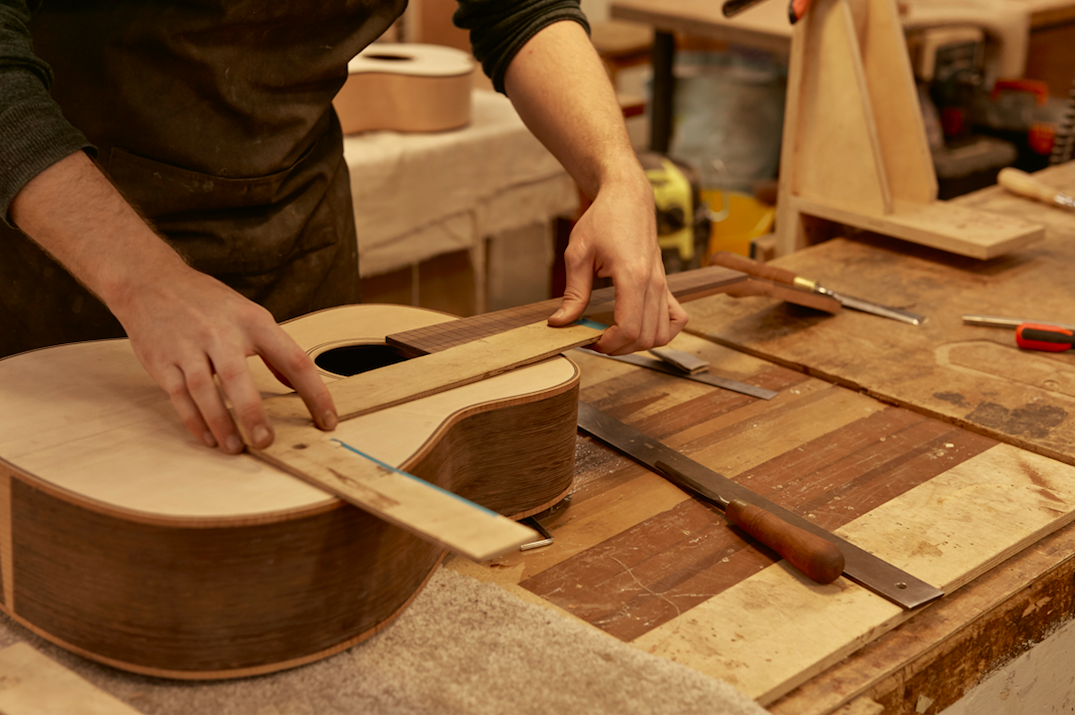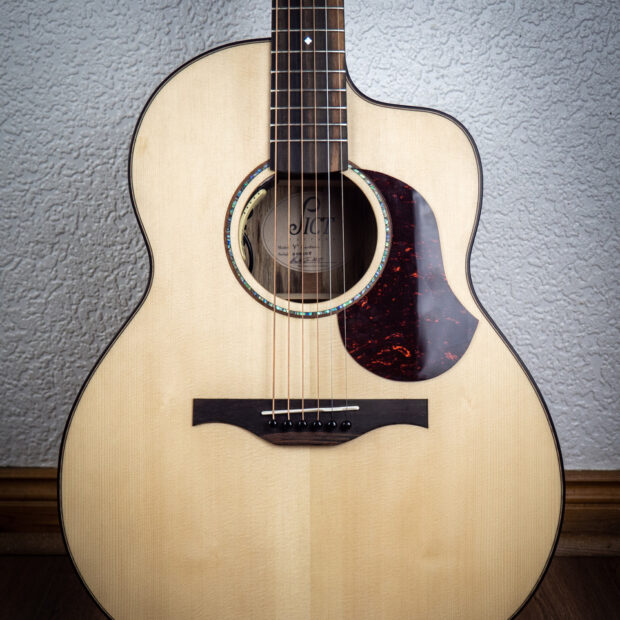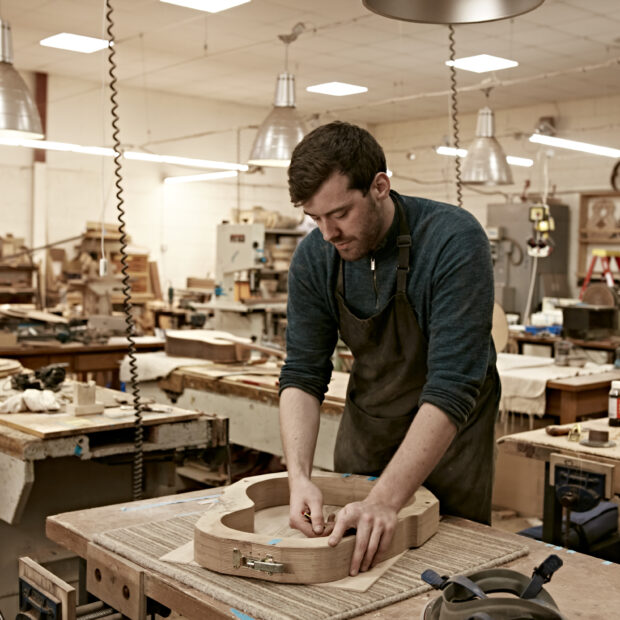Guitar Hero by Patrick Clarke
26th June 2022
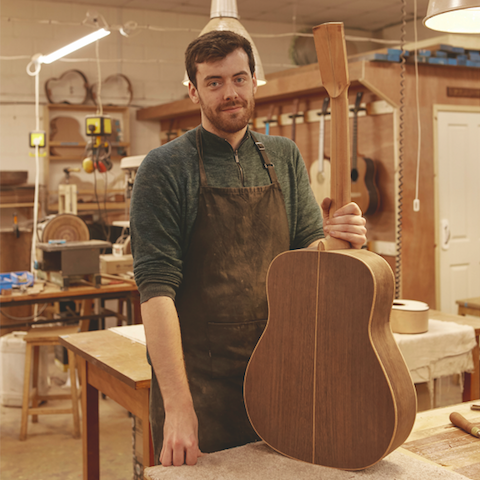
Luthier Kurtis Scott on why sustainability is at the heart of his handmade instruments
Kurtis Scott is a luthier based in County Down, Northern Ireland. After working for the renowned guitar-maker George Lowden, including on an instrument for Ed Sheeran, he recently launched his own business, Pict Guitars. With the help of a QEST Johnnie Walker Scholarship, Scott has also been studying under master craftsman Sam Irwin. He talks about his career so far and his mission to make his guitars as environmentally friendly as possible.
Being a luthier might seem an obscure career choice. How did you get into it?
Kurtis Scott: In Northern Ireland, guitar-making is pretty common. Even in Newtownards, the small town where I was born, there is a place called Avalon Guitars. I did work experience there when I was 16 and I loved it. It sounds weird, but the first thing that hit me was the smell of steamed wood – it’s amazing. I also love music in general, and there were all these posters on the wall – guitars they’ve made for people like Bruce Springsteen. But then I thought: “That’s not a realistic job”, so I went into an apprenticeship in engineering instead.
When did you realise that making guitars could be a career?
Engineering just wasn’t for me. I wanted something more hands-on. A job came up at Lowden Guitars after I had finished my apprenticeship, and I thought: “Now’s the time to take a leap”. I ended up doing really well. I worked my way up quickly: it usually takes five years to become a senior craftsman, but I was there after two.
What does being a senior craftsman mean?
It’s about being confident enough in several areas to train someone else up. I started off in the spray shop, where lacquer and finishes are applied, then someone left in a different area, so I kept moving through. I worked in the inlay department, neck-joining and fretting – every part of assembling a guitar.
When and why did you decide to branch out on your own?
During lockdown I dived into making my own stuff. There’s a workshop near my home run by Sam Irwin, so I rented space from him. I thought about leaving Lowden and starting my own company. At Lowden we used a lot of exotic woods – rare hardwoods are what a lot of people want, but that’s partly responsible for deforestation. That bothered me, so I decided to focus on sustainability. Three months in I got a QEST Scholarship, so I could keep a steady income but also do my own thing.
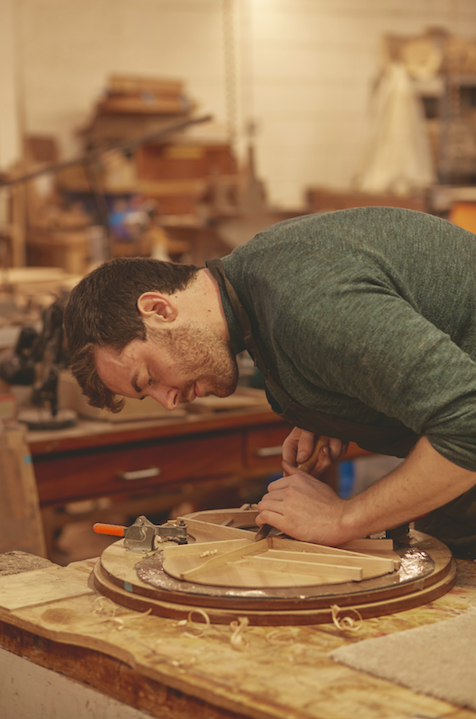
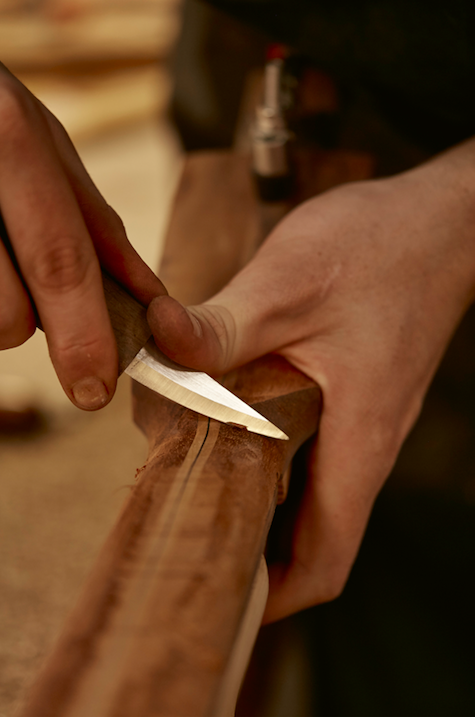
Do exotic woods affect the quality of a guitar?
Luthiers try to convince you they sound better, but that’s false. I’d rather use responsibly harvested quick-growing trees. The challenging aspect is getting people’s heads around the fact that they sound just as good.
How else do you build sustainability into your instruments?
I’m trying to swap to water-based lacquer instead of solvent-based mixture, which is toxic. It’s taking experimentation because it’s harder to work with. I noticed at Lowden that they burned scrap wood, whereas I use pretty much everything that’s left over to make inlays. When sourcing materials I also work with companies that are sustainably minded.
You’re directly studying under Sam. How’s your relationship?
I had already done a course with him when I built my first guitar, and we had a really good relationship. At Lowden I made hundreds of instruments – including Ed Sheeran’s stage guitar – but with Sam he gave me the knowledge to make something far more bespoke. He uses bog-standard hand tools, so with the knowledge he gives you, you could set something up in your garage.
The QEST Scholarship helped me pay for Sam to teach me more, especially the hand-crafted side of things. I’m working with him now on the design aspect of guitars, as opposed to just making them, particularly inlay work. That’s an art in itself, using different materials for different details.
How long does it take you to make a guitar?
It depends on what the customer wants, and whether or not you’re trying to be more creative. The most basic I could do in 80 hours, and the most expensive will take about 300 hours.
Does it ever go wrong?
I once blew up a guitar worth £4,500. I was spraying it, and using a sponge that blocked the sound hole. The air from the spray gun went through a gap in the body but then couldn’t get back out, and it went “bang!” Stuff like that happens all the time because wood is so organic. You’ll be bending and bending and all of a sudden it just decides “I’m gonna split!” But it’s all part of guitar making.
This article was written by Patrick Clarke, editor of Quietus, and originally appeared in the Summer 2022 issue of the QEST Magazine. Photos by Bríd O’Donovan.
